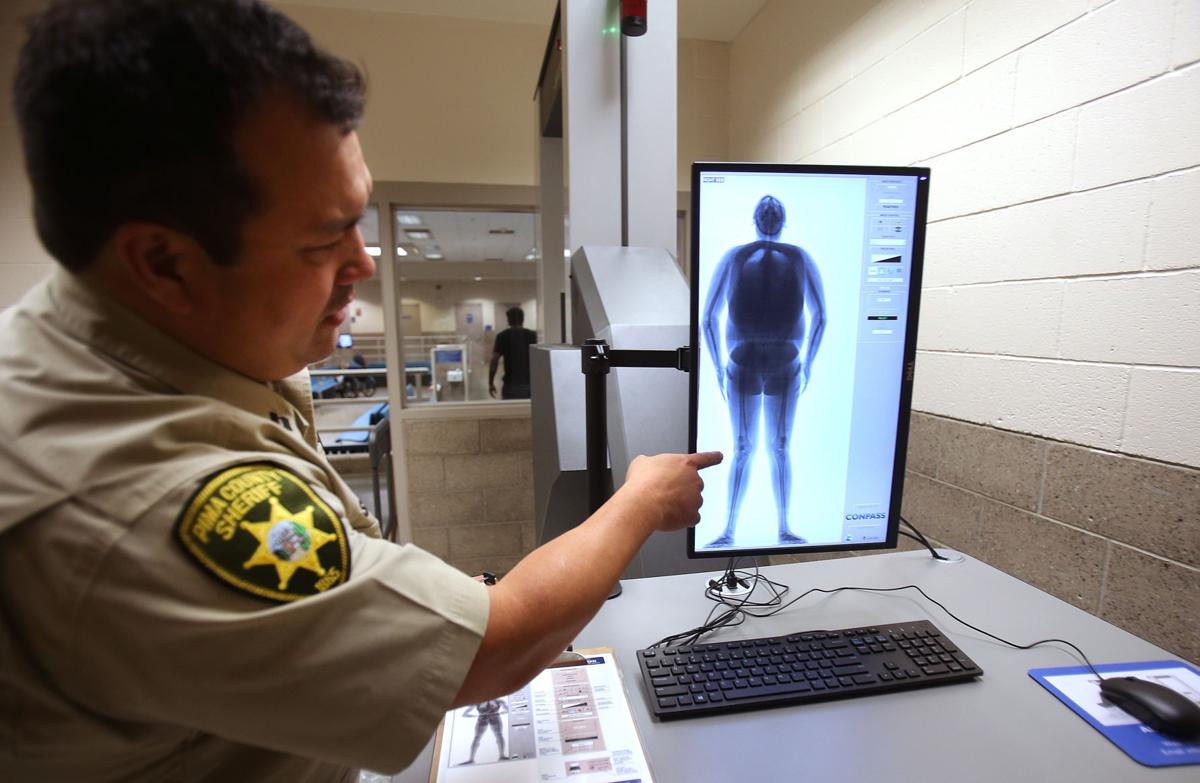The Pima County jail is among the first detention facilities in УлшжжБВЅ to install full-body scanning devices to screen incoming inmates for contraband.
The jail began using the scanners т which can take an image similar to an X-ray т in late November, and during their first week in use, staff found two people trying to smuggle in illegal items in their body cavities, according to corrections Capt. Darin Stephens of the Pima County Sheriffтs Department, which runs the jail.
Jail officers can now detect potentially dangerous contraband, such as knives or drugs, in a more accurate and less invasive way with the scanners.
тIt will definitely increase our ability to detect contraband being brought into our facility,т Stephens said. тSo this gives us the ability to see anything that couldтve been consumed or hidden in a body cavity.т
People are also reading…
The scan will only take seven seconds and provide much better screening accuracy, Stephens said.
Previously, a strip search would not provide the officers with the ability to see what had potentially been consumed by an inmate.
Cell phones and lighters are common items that officers can expect to find trying to be smuggled into the jail, which has about 1,800 inmates.
УлшжжБВЅ laws now state that corrections facilities can lawfully use the machines to identify contraband in accordance to health standards. The statute said jails and prisons тmay perform a body scan of an inmate by using low-dose ionizing radiation without an order from a licensed practitioner to prevent any contraband from entering into a correctional facility.т
Stephens said technology has allowed for improvements in finding contraband. тAs technology has advanced our ability to detect it has increased,т he said. тItтs always been an issue, itтs just now our ability to detect has greatly improved, whereas before we had to depend on just a wand, metal scanner, pat search and maybe a strip down.т
He said the frequency of people bringing in contraband to the jail has relatively stayed the same throughout his 19-year career.
The two scanners placed within the facility cost about $112,000, Stephens said.
On Aug. 21, technology company ADANI Systems Inc. agreed to a $250,000 contract to supply the system and provide maintenance. The company, which has its U.S. headquarters in Virginia, has 500 employees, operates in 50 countries and produces a variety of screening systems.
тThese body scanners are revolutionary, and will help ensure our inmates and employees are kept safe by greatly reducing the amount of weapons and contraband brought into our jail,т said Sheriff Mark Napier on his Facebook page. тWe are the first department in the state to utilize these new body scanners, and we expect other departments will soon follow our lead.

















